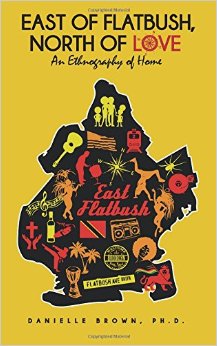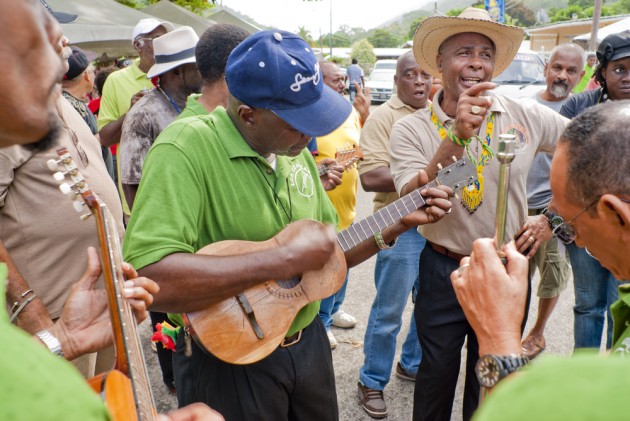|
Getting your Trinity Audio player ready...
|
Reading Time 4 mins
A Review by Jeff Hercules
If one word were acceptable as a review of Dr. Danielle Brown’s East of Flatbush, North of Love; An Ethnography of Home, the word would be, ‘Wow!’
All that would be left is for me to explain my review.
It’s not often I read a book that speaks as if it were a replay of aspects of my life: This book does that.

It’s not everyday I realize a book has information that would have made me a more knowledgeable student in school: This book would have done that.
It’s also not everyday I identify with an author to the extent I feel flashes of kindred spirit, if kindred spirits can flash that is.
Do not be fooled by the number of pages this author takes to tell her story. Writing experts say take as many pages as you need. However, the 180 pages Dr. Brown takes to tell the tale of what she calls a, “few snippets of my life”, is deceptive. Her travels, the stops she makes along the way — both in real time and through time — along with the nuggets of information she provides would take anyone trying to summarize it all at least twice as many pages.
This book, the first of its kind from anyone as far as I am aware, chronicles aspects of her life in Brooklyn NY once born to, and raised by her immigrant Trinidadian parents.
In the spirit of it taking a village to raise a child, her early influences include more than what were Trinidadian. In fact, she would have been a centipede for her feet to be in all the worlds into which she was born. In the book, she focuses on the culture and heritage of the world of her parents and family members back in Trinidad and Tobago.

Parang Musicians Serenading
To label Dr. Brown a Trini who just happened to be born in Brooklyn would be superficial if not meaningless in its simplicity. From her book, it is obvious she knows more about her genealogy than the average Trinbagonian knows about theirs. She also knows more about the history of the country than its average citizen. Include me in both groups. I now know that along with not paranging the wrong house, parranderos’ song selection is based on where they are in the serenade.
By the end of the book, I felt I knew Dr. Brown. Not all her experiences growing up in Brooklyn were my experiences growing up decades earlier in Trinidad and Tobago but, cut tails link us. My generation being closer to that of her parents made for some interesting reactions as I absorbed the book. Should I look at her sternly for fidgeting in church or, should I nod, thinking, “yes, dem services real long, ent?”
She uses over 100 musical pieces, mostly calypso and Soca, cueing up a different selection to set the tone and mood for a different section of her story. You want to set the scene for, Part II: Of Ghosts and Obeah? Kitchener has Love in the Cemetery and Sparrow, Obeah Wedding.

Labor Day Carnival 2014, Brooklyn, New York
But, with music being her forte, she includes enough non-Trini music to show her breadth. If Kitchener predates you and Sparrow is but a bird, you will be happy when she cues up Draze for her lament about the effects of gentrification.
Yes, I would argue 100 plus cues in 180 pages shows both depth and breadth of someone whose musical research has focused on parang.
Dr. Brown identifies what is important by how much time she spends on that topic: Religion is important. Family is important. Culture is important. Self is important.
I am still debating when would have been better to know her story was as she described — snippets of her life; before or after she told it. Would I have had my initial struggle to align with the book’s style if I had had known that before? In the end, it may be of little importance.

Dr. Danielle Brown reading from her book, “East of Flatbush, North of Love”
All the book’s footnotes? Dr. Brown had been steeped in academia. Still, I enjoyed the reference to The Andrew Sisters and Rum and Coca Cola. I had waited for an opening to dispute reference to Morey Amsterdam and ownership of the song only to have Dr. Brown neutralize my planned counterpunch by recognizing Lord Invader in the mini scandal over the song.
Read the book for details.
The snippets of her life she had shared did not slake my thirst so I sought out more information about Dr. Brown. Now I know my membership in the Trinidad and Tobago diaspora meant I was targeted for reading her book. She said as much before realizing how wide a net she wanted to cast for readers. In her amended view, anyone who could read should read the book.
When I searched local Trini newspapers online using the book’s title, I did not get any hits. Not good.
So, to go along with my early, ‘Wow!, of approval, let me add this: If you are part of the Caribbean diaspora you should read this book.
If you are part of the Trinidad and Tobago diaspora you have to read this book. Everyone else is invited.
Jeff Hercules blogs weekly on all things Trini at www.trinispeak.com. He has begun pulling his various writing projects into one location: Visit www.jeffhercules.com for that.

